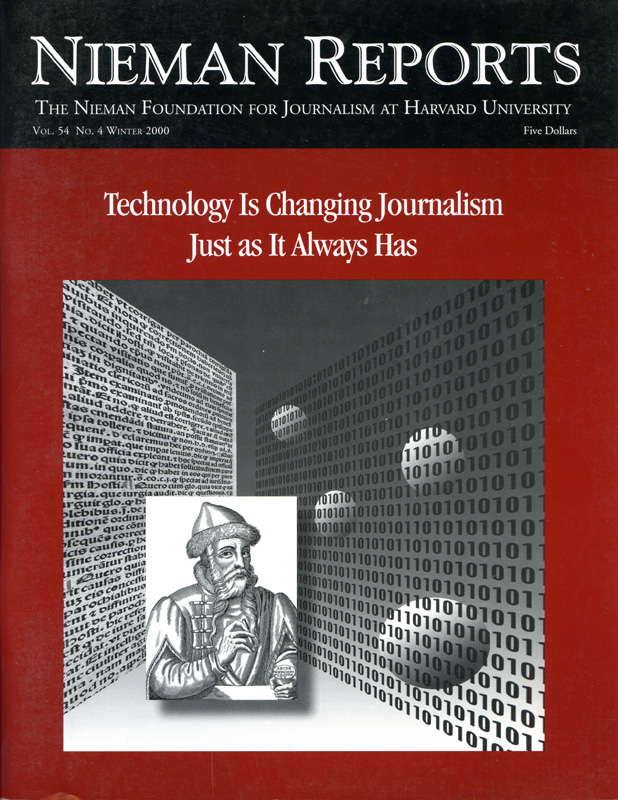ISSUE
Winter 2000

Technology Is Changing Journalism Just as It Always Has
Our journey into the digital future begins with an essay by Tom Regan, associate editor of The Christian Science Monitor’s Web site. His advice: Remember that technology is changing journalism, “as it always has;” wireless is the next publishing realm, and the Web—as a news distribution method—is (almost) already dead.